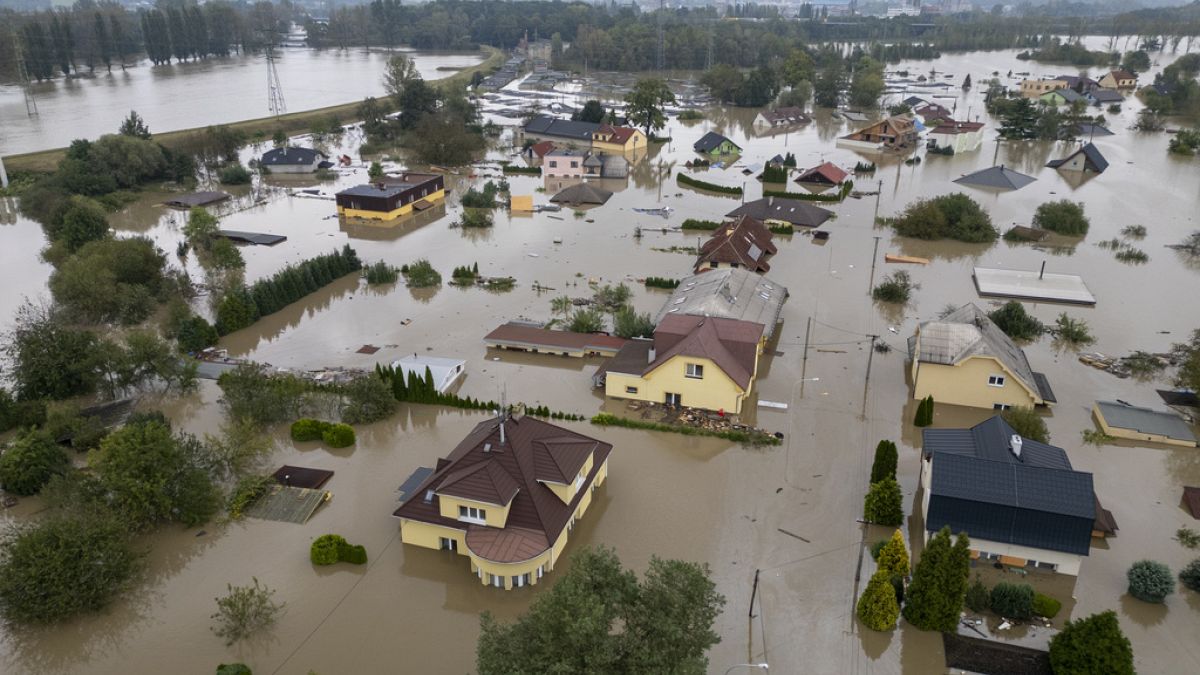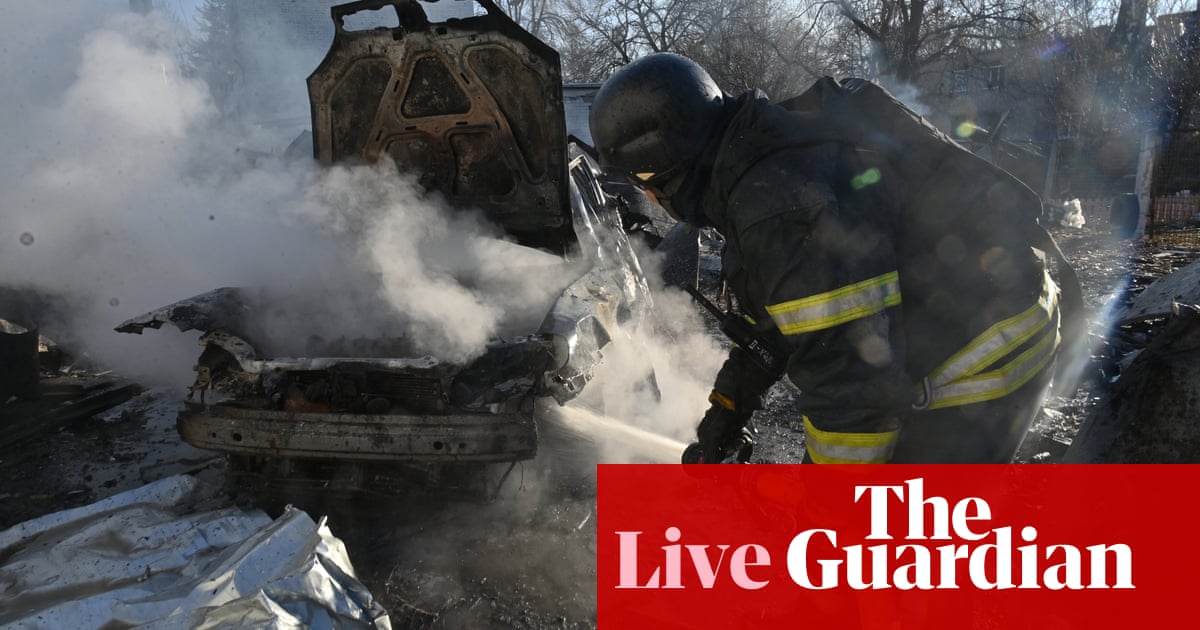What is the economic impact of floods across Europe?

Central Europe is experiencing its biggest floods in decades, which is expected to cost billions in economic losses.
Economic losses due to the latest flooding in central Europe are significant. The first estimations show that the cost of the current floods alone could surpass a billion euros, but the precise costs are yet to be summed up as the torrential rain from Storm Boris keeps pounding the region, leaving a mounting death toll and considerable damage behind.
One estimation suggests that the bill could range from several hundred million euros to more than one billion euros, reported Reuters, citing early estimates from Credit rating agency Morningstar DBRS.
Mario De Cicco, vice president of global insurance and pension ratings at Morningstar DBRS, told Euronews Business in emailed comments that “based on the latest information available, the highest insured losses could possibly occur in Czech Republic, one of the countries most impacted by the recent adverse weather events,” adding that the insurance for natural disasters is more prevalent in the country than in the other affected ones.
How countries are affected?
In Europe, flood is already the costliest natural hazard, according to UK Environmental consultant JBA Risk Management. River flooding alone costs €7.8 billion each year and it is expected to increase as economies continue to grow in high flood-risk areas and climate change leads to greater and more intense precipitation.
This time, the flooding has swamped parts of Austria, the Czech Republic, Poland and Romania and it is expected to affect Slovakia and Hungary too.
Hundreds of millions of euros’ worth of emergency funds have been freed by the Polish, Romanian and Austrian governments and the Czech government is considering altering its 2024 budget due to the flood-related damages.
Overall the damage to infrastructure, buildings and property and the increase in rescue and relief expenditure, can also trigger a decrease in production and economic activity, according to Grzegorz Dróżdż, market analyst at Conotoxia Invest.
“These factors usually lead to a negative impact on budgets and trade, manifested as an increase in the deficit and a worsening of the trade balance, due to a decrease in exports and a rise in imports.”
“The flooding that Poland, the Czech Republic and Austria are currently facing will certainly now be very painful and costly for the population and will negatively affect already burdened budgets,” said Dróżdż.
How businesses are affected?
Poland’s biggest insurer PZU is facing a 10% in its profit due to weather-related claims, reports Bloomberg citing data from Ipopema brokerage.
Some of the factories and stores affected by the floods shut down production lines, among them the BorsodChem chemical plant in Ostrava, Czech Republic, Czech-based drinks maker Kofola CeskoSlovensko, and the OKK Koksovny coking plant – one of the largest producers of foundry coke in Europe – stopped chemicals production, reported Reuters.
Cross-border rail services have been suspended between Poland and the Czech Republic as well as Hungary and Austria.
The economy’s prospects in the long term
Regarding the overall impact on the economy, analysts at Erste Group expect a contained impact, adding that it is too early to see clearly.
Katarzyna Rzentarzewska, Chief CEE Macro Analyst of Erste Group said to Euronews, “For example, in Czechia we would see the combined economic impact related to damages to property and production could be 0.2-0.5% of GDP with the overall impact on GDP growth much smaller, likely at the lower-end of this range.”
She expects that in the short term (by the end of this year), the industrial sector would receive a negative impulse in all countries impacted by the flooding and tourism in the regions may suffer as well. “Finally, the damages to crops may have inflationary effects,” said Rzentarzewska.
Analysts also agree that in the long term, the picture is quite different, as restoration work is going to give a boost to the construction sector, “adding to the GDP in the medium-term horizon,” said Rzentarzewska.
“It can also stimulate new investment in modern technology, as well as more resilient and developed infrastructure,” said Dróżdż.
Related
Zelenskyy reiterates call for air truce after huge Russian attack…
We need Russia to stop attacks, Zelenskyy says, backing calls for truce in air, at seaUkrainian president Volodymyr Zelenskyy has responded to overnight attacks
Europe scrambles to rearm as Trump threatens security guarantees and…
CNN — European leaders have vowed to rearm the continent at historic emergency talks h
Russia launches ‘massive’ attack on Ukraine after Europe rushes to…
Ukraine's energy and gas infrastructure came "under massive missile and drone shelling" by Russia on Friday, a Ukrainian minister said."The energy and gas infra
American severance may be averted, but Europe’s leaders must fear…
With a mixture of regret, laced with incredulity, European leaders gathered in Brussels to marshal their forces for a power struggle not with Russia, but with t












